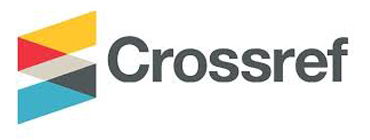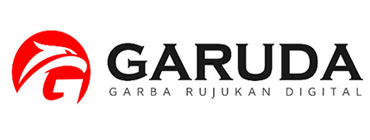IMPROVING STUDENTS’ VOCABULARY MASTERY THROUGH THE UTILIZATION OF QUIZLET APPLICATION AT THE TENTH GRADE OF MAS IBADURRAHMAN IN 2020/2021 ACADEMIC YEAR
Abstract
Vocabulary as one aspect of language skills is considered to have a paramount role on the mastery of other language skill in language learning. Therefore, to improve students’ vocabulary mastery a myriad of studies have employed MALL as an approach in clasroom practices, particulary for English language teaching (ELT). This study aimed to investigate how to use of digital game application called Quizlet affected students’ vocabulary mastery. This study was conducted at the Tenth grade class of MAS Ibadurrahman with 33 students as the participants. Classroom action research with two cycles was used as the research design. In each cycle, the researcher collected both qualitative and quantitative data. The qualitative data were taken through observation checklist, diary notes, interview, and documentation while the quantitative one from pre- test, post-test I and post-test II. The result of qualitative data revealed that: 1) students enjoyed and actively participated in vocabulary learning utilizing Quizlet application; 2) students felt more interested and motivated to learn vocabulary mastery. Whereas the result of quantitative data showed that in cycle I, there was 9 students reaching the Minimum Criteria of KKM score with the average score of 62.2 while the percentage was 27.2%. In cycle II, 29 students reached the Minimum Criteria of KKM score with the average score of 85.6 while the percentage was 87.8%. Eventually, it can be concluded from the students’ scores that there was improvement from cycle I to cycle II, thus vocabulary learning activities utilizing Quizlet application was effective.
Full Text:
PDFReferences
Alqahtani, M. (2015). The importance of vocabulary in language learning and how to be taught. International Journal of Teaching and Education, 3(3), 21-34.
Asrul & Ananda, R., & Rosnita. (2014). Evaluasi pembelajaran. Medan: Perdana Mulya Sarana.
Aulia, R. M,. (2016). Improving grade eight students’ vocabulary mastey using flashcard. Thesis. Yogyakarta State University.
Azis, H. (2019). Validitas, reabilitas, praktikalitas, dan efektivitas bahan ajar cetak meliputi handout, modul, dan buku (diktat dan buku tes). Thesis. Padang State University.
Benyamin, H. (2017). Bahasa Inggris untuk SMA Kelas X, Bandung: Grafindo Media Pratama.
Blair, W. B. (2016). Checking the Effectiveness of Quizlet as a Tool for Vocabulary Learning. The center for English as a Lingua Franca, Japan.
Cahyono, B.Y. & Utami, W. (2008).The teaching of EFL vocabulary in the
Indonesian context: The state of art. TEFLIN Journal, 19(1), 1-17.
Chriany, J. E. (2018). The use of Quizlet as a learning medium to improve English vocabulary mastery. Thesis. University of Sanata Dharma Yogyakarta. English Syllabus Curriculum K-13, 10th Grade.
Fithriani, R., Tien, R., & Amiruddin, S. (2018). Integrating online blogging into EFL writing instruction: exploring students’ perceptions. Advancess in Social Science, Education Humanities Reseacrh (ASSEHR), 188, 87.
Fithriani, R., Utami, D., Sholihatul, H., Maryanti, S., & Widya, F. (2019). Using facebook in EFL writing class: its effectiveness from students’ perceptive. The Second Annual International Conference on Language and Literature, Universitas Islam Negeri Sumatera Utara (UINSU): Medan, 637.
Hamidah, S. (2019). Language and society. Medan: Lembaga Peduli
Pengembangan Pendidikan Indonesia (LPPPI).
Ilyas. (2016). Pendidikan karakter melalui homeschooling. Journal of Nonformal
Education, 2(1), 94.
Izhar, O., & Khalid Arar. (2019). Emotion Management and Feelings in Teaching and Educational Leadership. United Kingdom: Emerald Publishing
Juliandi, A. (2014). Classroom Action Research: Penelitian tindakan kelas. Paper presented at Workshop on Teaching Grant for Learning Innovation. Medan: Center for curricullum and learning development, UMSU.
John, P. J., & Templeton, S. (2004). Teaching and Developing Vocabulary: Key to Long Term Reading Success. USA: Houghton Mifflin Company.
Khasinah, S. (2013). Classroom action research. Jurnal Pionir, 1(1), 108
Lauder, A. (2008). The status and fumction of english in indonesia- a review of key factors. Makara, Sosial Humaniora, 12(1), 10.
Lie, Z. (2018). Vocabulary learning assisted with smartphone application. Theory and Practice in Language Studies, 8(11), 1516.
Lolong, S. (2019). Persepsi mahasiswa terhadap penggunaan lagu bahasa inggris untuk pembelajaran bahasa inggris. Thesis. Samratulangi University of Manado
Mahmud, & Priatna, Tedy. (2008). Penelitian tindakan kelas: Teori dan praktek. Bandung: Bumi Panyileukan.
Monica, N., et all. (2016). Perspectives of introduction of the mobile-assisted language learning technology. International Journal of Environmental & Science Education, 11(15), 8564.
Peraturan Menteri Pendidikan Nasional No.47 Tahun 2010
Peregoy, S. & B. O. (2012). Reading, writing and learning in ESL: A resource book for teacher. New York: Allyn & Bacon.
Puspitasari, N. (2019). Enhancing student’s vocabulary mastery by using quizlet
Suprayitno, E. (2014). The survey of students’ difficulties in learning English skils at the eight grade Junior High School. Thesis. State Islamic Institute Tulungagung.
Solhi, M. (2019). The effect of humoer-integrated pictures using quizlet on vocabulary learning of EFL leaners. Journal of Curricullum and Teaching, 8(2), 26.
Syafaruddin, A. (2018). An Analysis on the Students’ Vocaulary Mastery a Descriptive Study on the MTS. Thesis. Tanjungpura University.
Syawal, P. S. B. T. (2017). Investigating Indonesia EFL leaners’ learning and acquiring English vocabulary. International Journal of English Linguistics, 7(4), 128.
Tayabeh, M., M., et all. (2012). Mobile-Assisted Language Learning. International. Journal of Distributed and Parallel System, 3(1), 310.
Tim Pusat Pendidikan & Pelatihan Pengawai Kementerian Pendidikan dan Kebudayaan, (2017). Modul diklat teknis penyusunan karya tulis Ilmiah (Penelitian Tindakan Kelas). Depok. Kementerian Pendidikan dan Kebudayaan Pusat Pendidikan dan Pelatihan Pengawai.
Torsani, S. (2016). CALL teacher Education: Language Teachers and Technology Integration. Netherland: Sense Publisher
Verdinelli, S., & Norma, L.S. (2013). Data display in qualitative research .The International Journal of Qualitative Methods,(12),359-381
Widyaningrum, R. (2017). Statistika Yogyakarta: Pustaka Felicha.
Yang, J. (2013). Mobile assisted language learning: review of the recent application of emerging mobile technologies. English Language Teaching, 6(7), 19.
Zalmansyah, A. (2011). Meningkatkan perbendaharaan kata siswa dengan menggunakan komik stirp sebagai media pembelajaran bahasa inggris. Jurnal Kandai, 9(2), 263.
Zunita, M. M., & Harun, B. (2016). Receptive vocabulary knowlegde or productive vocabulary knowledge in writing skill, which one important?. International Journal of Academic Research in Business and Social Sciences, 6(11), 262.
Refbacks
- There are currently no refbacks.

This work is licensed under a Creative Commons Attribution-NonCommercial-ShareAlike 4.0 International License.
INDEXING
Bright Vision by UIN Sumatera Utara Medan is licensed under a Creative Commons Attribution-NonCommercial-ShareAlike 4.0 International License.
Based on a work at http://jurnaltarbiyah.uinsu.ac.id/index.php/brightvision.









